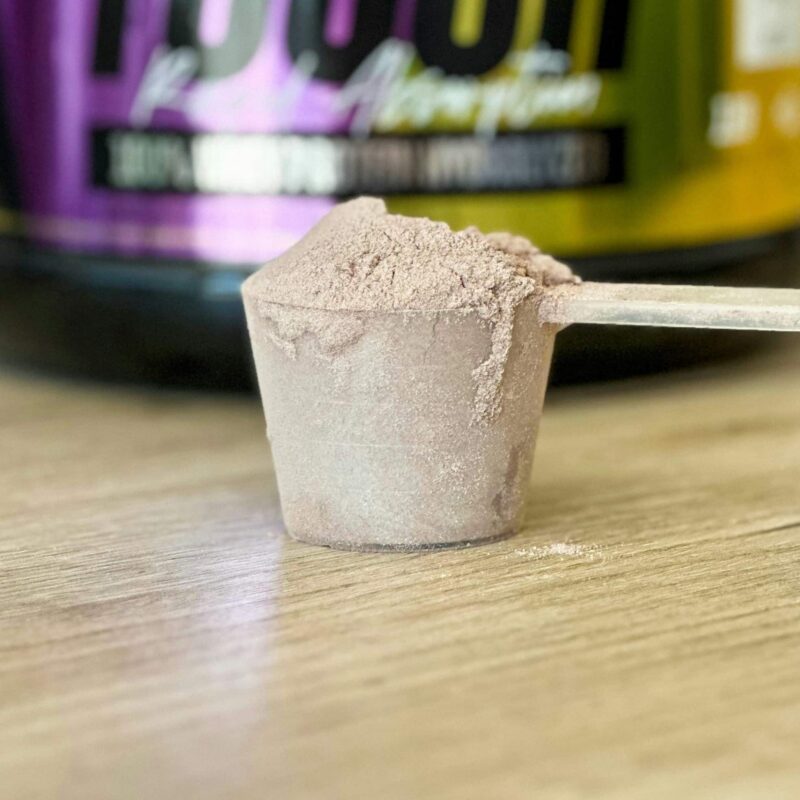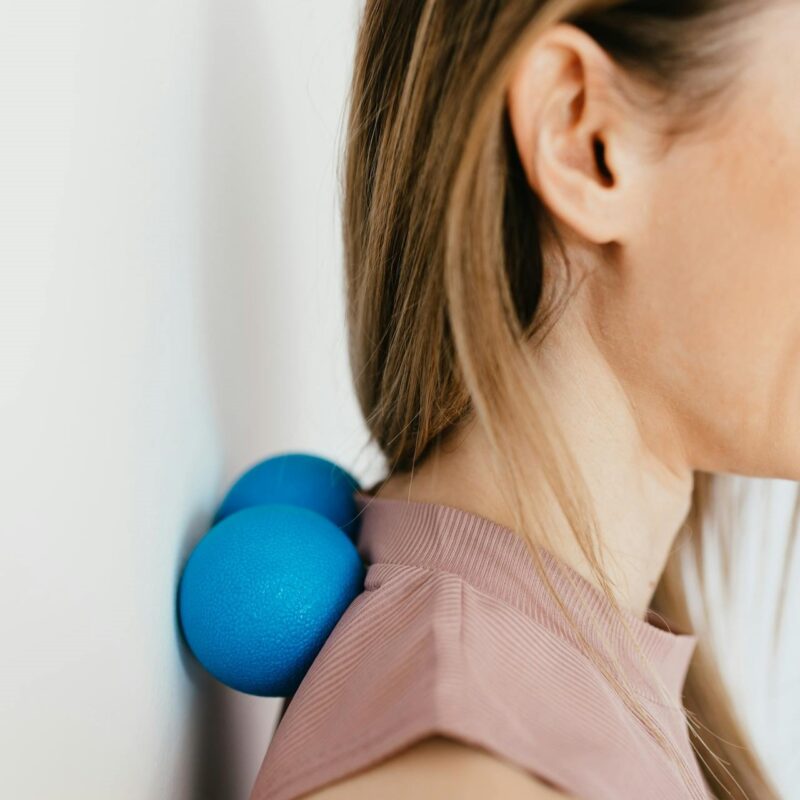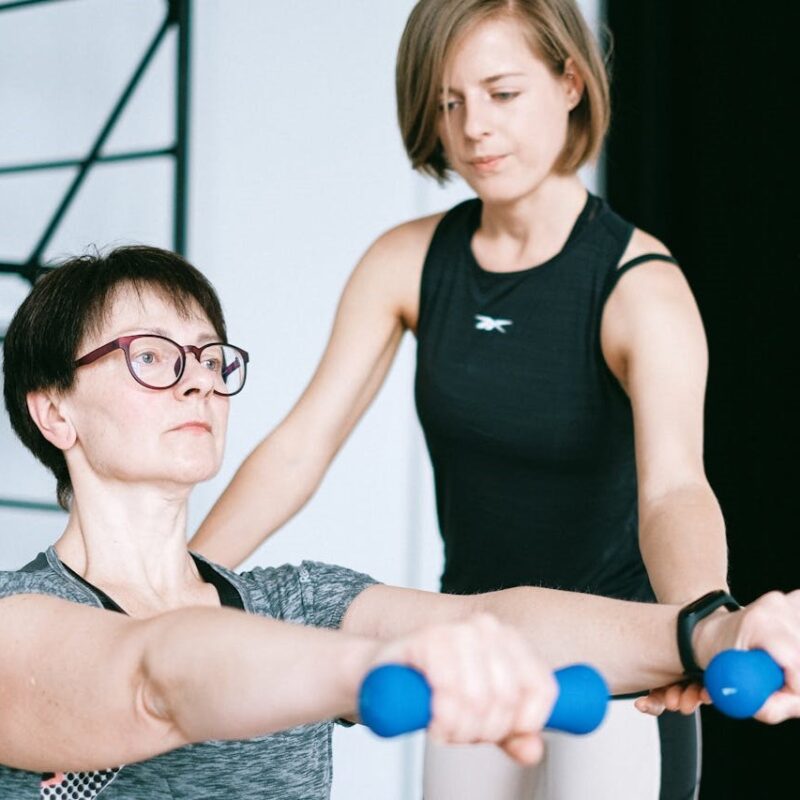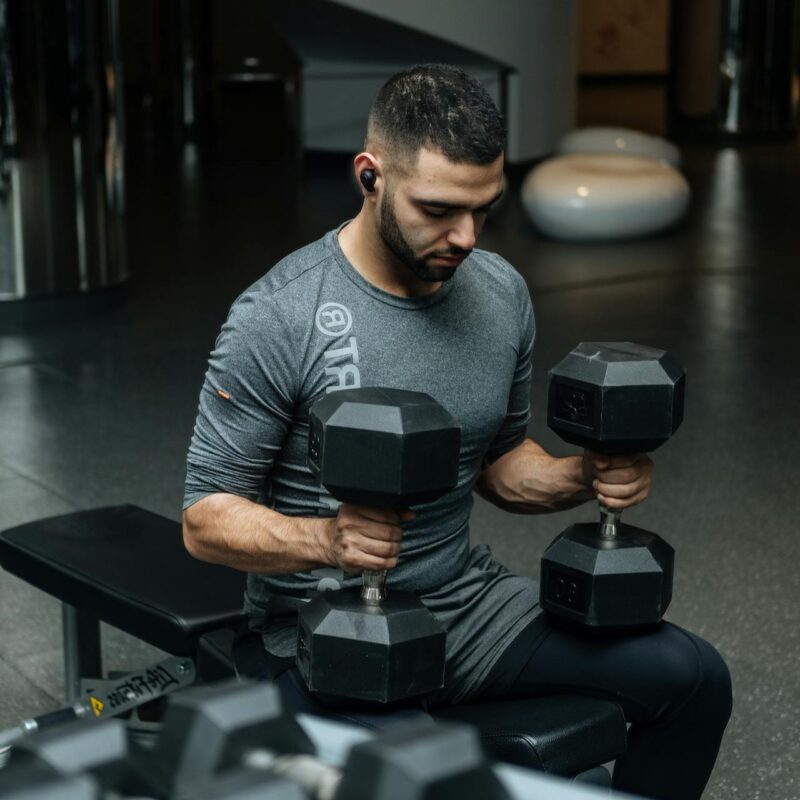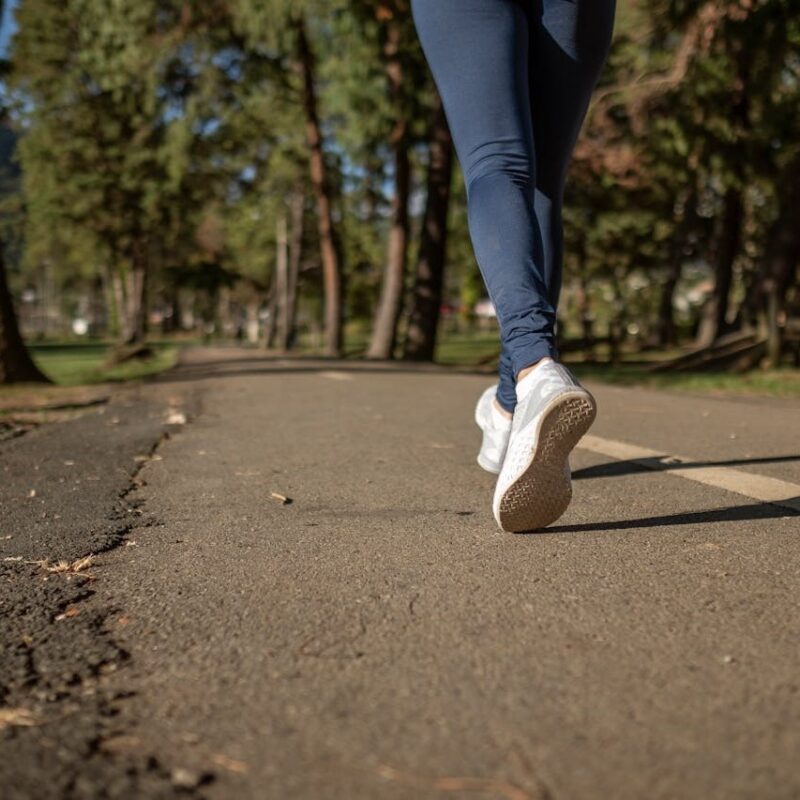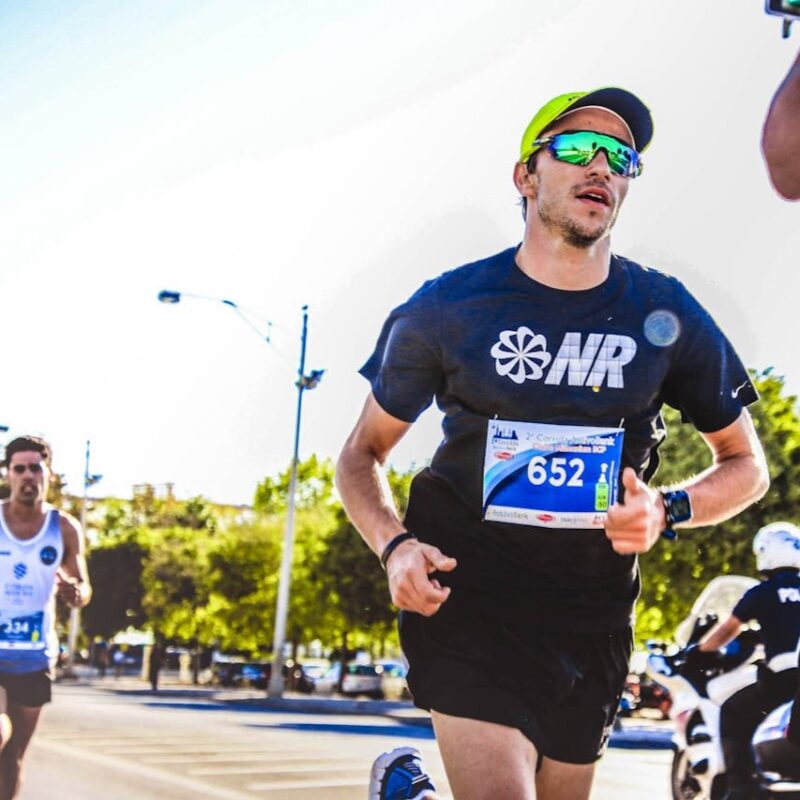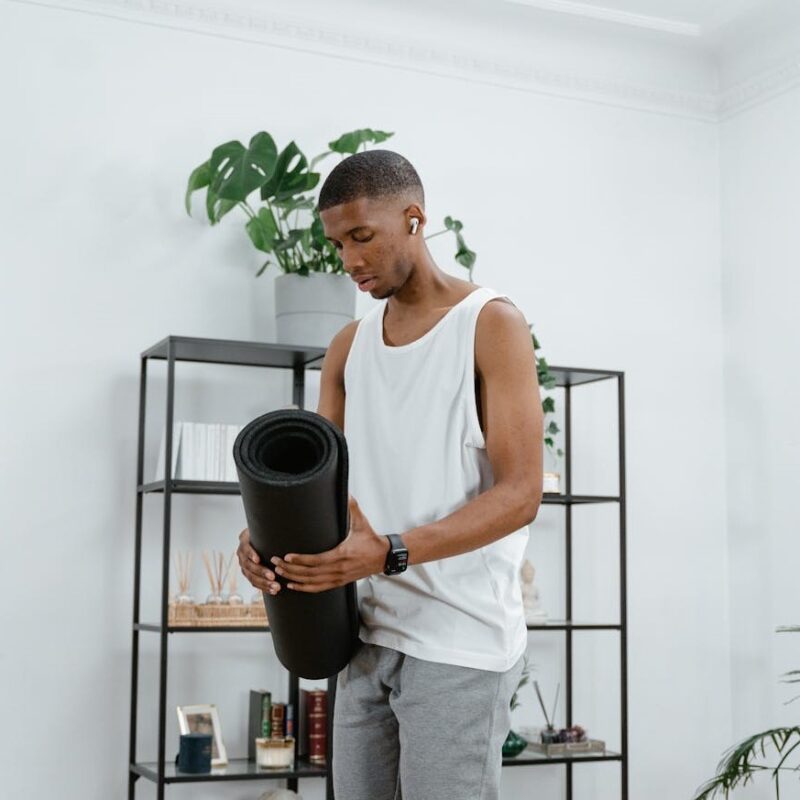10 Great Tips For Healthy Eating In Ramadan!
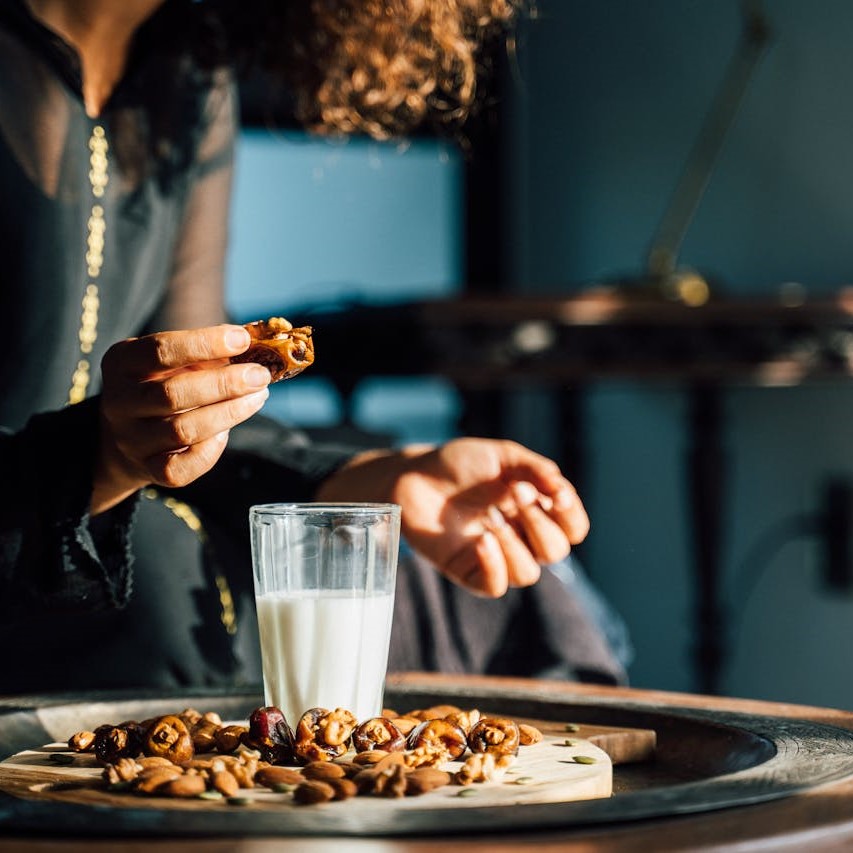
The start of Ramadan marks the welcome of oily parathas in Suhoor and fruit chaat in Iftar. Although we do understand that these things can be bad for health, we cannot stop ourselves from filling our tables with them. So, are you looking for some tips for healthy eating in Ramadan?
The good news is that you can still maintain a healthy eating routine in Ramadan without cutting back on all these foods. It’s necessary to keep their intake within a limit, but you can still celebrate a cheat day and eat pakoras in Iftar.
If you’re also concerned about your fitness routine in Ramadan, we have some tips for healthy eating in Ramadan ready for you!
Let’s uncover the secrets to maintaining your eating habits in Ramadan.
1. Stay hydrated
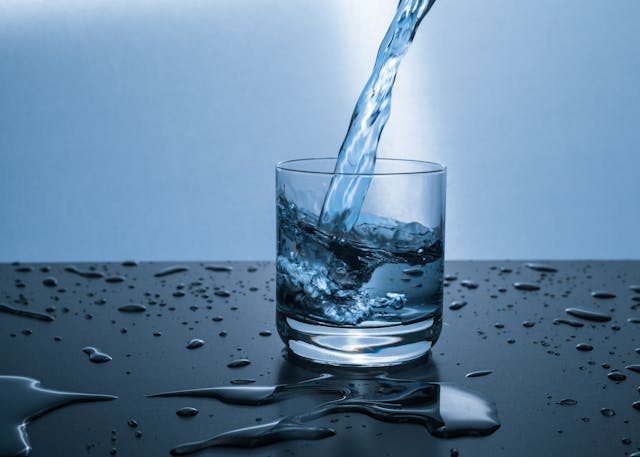
It’s necessary to stay hydrated and drink plenty of water during the non-fasting state because we’re not allowed to drink water while fasting.
An alternative to staying hydrated is to eat plenty of fruits in Iftar, like watermelon, cucumbers, etc.
We already know that dehydration can cause health issues, some of which include dizziness and fatigue. The situation can get worse if you’re also exercising during Ramadan and not consuming enough water.
So, it’s better to drink plenty of water while exercising during Ramadan, as most people prefer to exercise during the non-fasting state.
Another great idea is to drink water frequently. Having all the water at once will flush through your body quickly. So, you should keep consuming water in small amounts from Iftar to Suhoor.
2. Eat whole wheat foods in Suhoor
In Suhoor, it’s better to eat whole wheat foods because they contain carbs, which take longer to digest.
In this way, your stomach will feel full for most of the day, making it easier for you to suppress your hunger.
Including a protein shake in your Suhoor is also a good idea because protein shakes with a milk base have satiating abilities. Also, protein shakes are a great workout partner in Ramadan as they provide energy and contain several essential vitamins and nutrients.
3. Eat moderately during Iftar
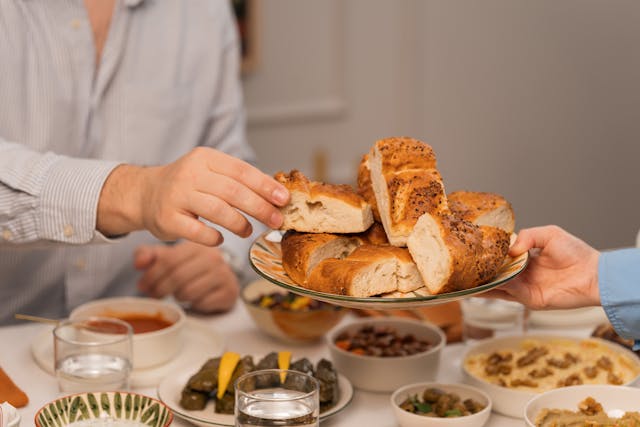
We understand it’s difficult to stop yourself from quickly grabbing all the samosas and pakoras on the Iftar table. But the truth is, eating too much during Iftar can be difficult for the stomach to digest.
The best idea is to eat moderately in Iftar and keep your pace slow. Starting with dates and a bit of water, you can keep your speed of eating slow and consume the ideal amount of each dish.
Remember, it’s not necessary to eat all at once. You can also break these periods and consume food with breaks after Iftar.
It’s true that you get the urge to eat too much at Iftar. But your stomach has already been empty the whole day, and eating all at once will make it difficult for the stomach to digest. Moderate eating at a slow pace will make it easier.
4. Avoid oily foods at Iftar
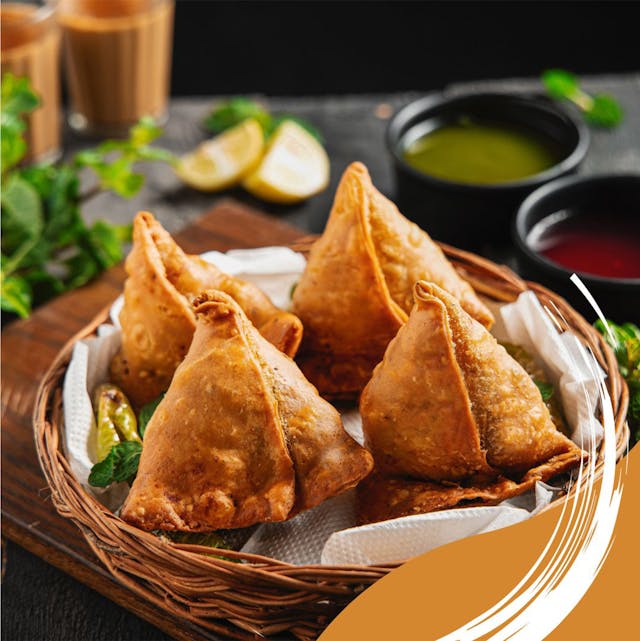
Avoid oily foods?
You mean, samosas and pakoras? And those oily parathas in Suhoor?
Well, no matter how tempting they seem, we all know that too many oil foods are detrimental to our health.
So, it’s better to limit your intake of oily foods, especially in Iftar, and replace them with fruits and other healthy food items. These also include roasted chicken, baked potatoes, etc.
After all, you don’t want acne on your face at Eid!
5. Avoid carbonated drinks
Carbonated drinks aren’t healthy in a regular routine, either. So, even if you’re used to having fizzy drinks, try limiting their intake during Ramadan.
Apart from providing no nutrition, fizzy drinks can also make you dehydrate quickly. So, it’s better to replace fizzy drinks with something more valuable, like a protein shake!
6. Include unsaturated fats in your meals
In Ramadan, you should include healthy unsaturated fats in your meals to stay active and healthy.
It is because unsaturated fatty acids help reduce inflammation and keep cholesterol levels in control. Apart from this, they also help in the efficient absorption of various vitamins.
Examples of foods that contain unsaturated fats are avocados, nuts, olives, fish, and vegetable oils.
7. Avoid caffeine at Suhoor

Although most people prefer caffeine at Suhoor, it’s not recommended.
The reason is that caffeine can make you urinate more frequently. With this, the water content of your body will drop later during the day, and you might get dehydrated.
Especially if you consume more caffeine regularly, try reducing its intake during Ramadan to get the most health benefits during this month.
8. Stay regular in your exercise
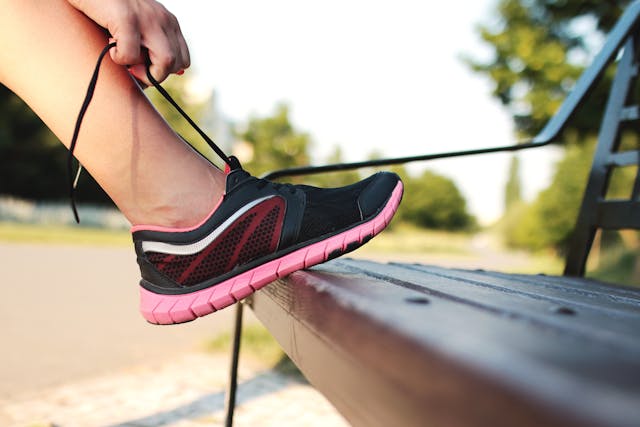
Although staying consistent in your exercise during Ramadan is difficult, you can take some days off. However, make sure that you don’t completely stop exercising, as it will become difficult for you to come back on track.
It’s better to exercise less and take some rest days, but try to stay consistent with the little exercise you’re doing.
If lethargy and dizziness make you step back, drink a protein shake to fuel your energy!
9. Break your fast with dates and water
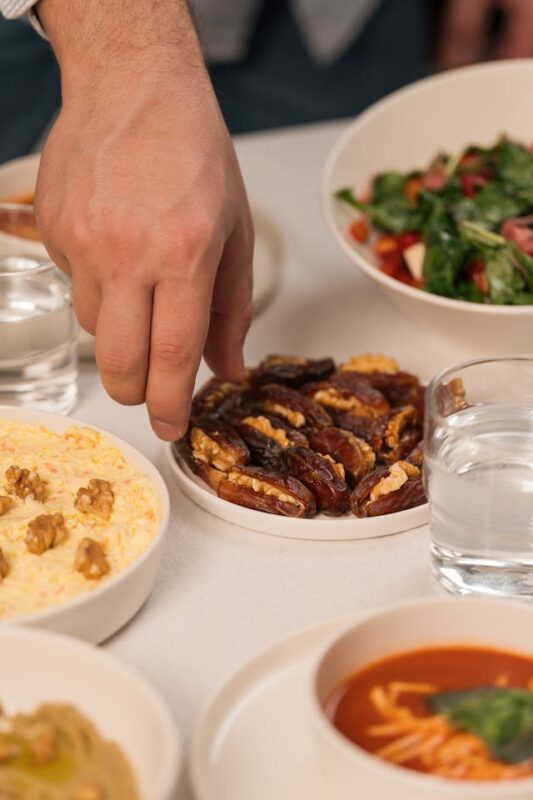
Breaking your fast with dates and water is also a religious recommendation. But we also know that dates have a lot of nutritional benefits for us.
So, you should open your fast with a few dates. They provide energy and nutrients and make you feel full for longer. Then, you can have water or milk.
As we mentioned above, it’s better to take breaks between eating after breaking your fast.
10. Include enough protein in your diet
We can fulfill our carb requirements with parathas and other whole wheat items. But what about the protein requirement?
Well, to combat that, you can include meat items and eggs in your Suhoor and Iftar. The truth is, protein can help make fasting easier.
If you’re not a fan of eating these in Suhoor, a great alternative is having a protein shake. You can get enough protein and other essential vitamins in it, and it will leave you feeling fuller and more satiated.
Not to mention, our Hyper Whey is a convenient source of instant protein for you!
Take-away message
Staying consistent with a healthy routine is easier to think of during Ramadan, but following it becomes difficult. It is because we eat too many oily foods and unhealthy items that can have a toll on our overall health.
While fasting, our bodies are already deprived of water and food as we skip meals. Thus, it’s necessary to consume the required nutrients during our non-fasting state.
With our tips for healthy eating in Ramadan, your fitness journey will stay on track, and you’ll look your best on Eid!

